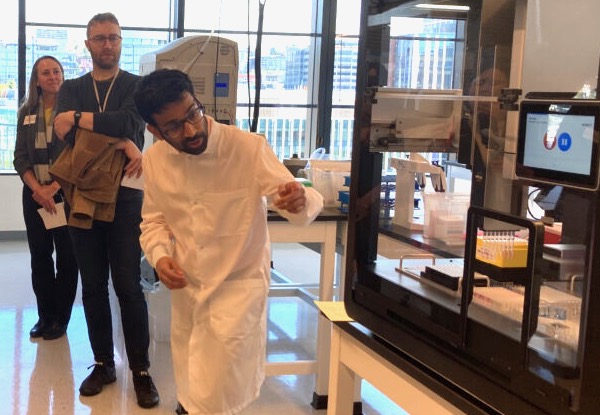The new Seattle Hub for Synthetic Biology, a collaboration between the Allen Institute, the Chan Zuckerberg Initiative, and the University of Washington, has opened its doors. The hub aims to combine academic creativity with startup-style industrial execution and will focus on building a “recorder mouse” to track biological actions in real-time. With significant financial contributions from both the Allen Institute and the Chan Zuckerberg Initiative, and foundational technology from the University of Washington, the hub is equipped to make significant advancements in the field of synthetic biology.
The hub’s lead scientific director, Jay Shendure, has developed DNA-based technology that allows for the longitudinal recording of biological activity. This approach involves generating DNA barcodes for each cell that reflect biological activity, allowing researchers to track cellular events over time. Initially introduced in a 2022 study published in Nature, this technique has the potential to trace various cellular states and actions, ultimately leading to the development of new drugs and treatments. The goal is for the methods to be used in a broad range of applications, from assessing therapeutic cell actions to tracking how the body responds to drugs.
Potential applications of the hub’s research include improving the design of therapeutic cells and tracking how a mouse responds to specific drugs over time. Marion Pepper, co-director of the hub and professor of Immunology at the University of Washington, is particularly enthusiastic about the potential applications in immunotherapy. By applying these technological developments to immune cells, researchers hope to revolutionize disease treatment and gain new insights into cell behavior. The hub currently has 15 staff members and plans to expand its team in the coming years.
The hub’s research teams are focused on developing sensors to detect events in cells, recording information into DNA through a “DNA typewriter,” generating large DNA molecules for engineering into cells, and interpreting the edited DNA sequences to track changes over time. With an emphasis on open science and collaboration, the hub is poised to make significant advances in synthetic biology. By leveraging cutting-edge technology and interdisciplinary expertise, researchers at the Seattle Hub for Synthetic Biology aim to revolutionize how diseases are treated and understood, ultimately leading to improved healthcare outcomes.
The Seattle Hub for Synthetic Biology occupies 3,600 square feet in Dexter Yard, with plans to expand to 12,000 square feet in the future. The four research stations in the hub focus on developing sensors, recording information into DNA, generating large DNA molecules, and interpreting edited DNA sequences. Each team plays a crucial role in advancing the field of synthetic biology, with a focus on improving therapeutic cell design, monitoring cellular responses to drugs, and revolutionizing disease treatment. By combining academic creativity with industrial execution, the hub is set to drive innovation in the field and make significant contributions to scientific research.


